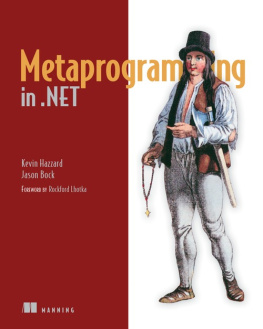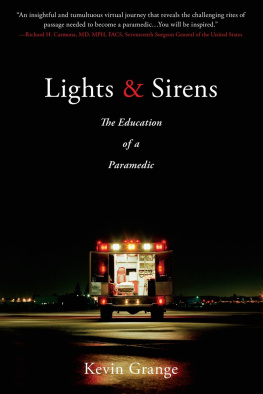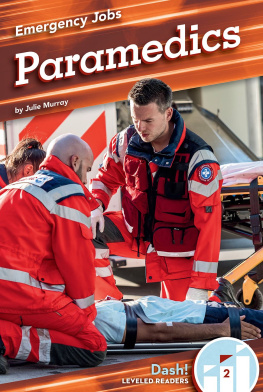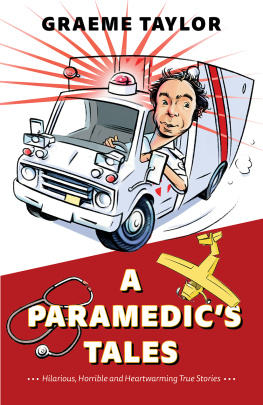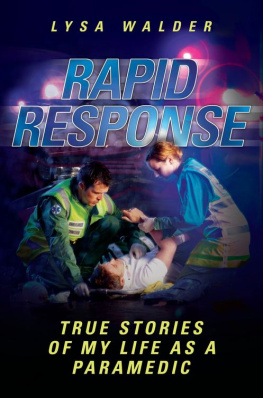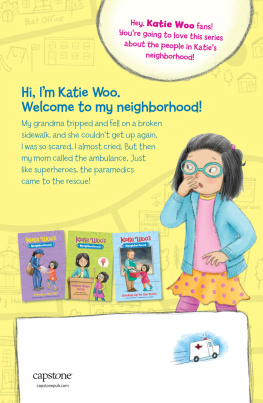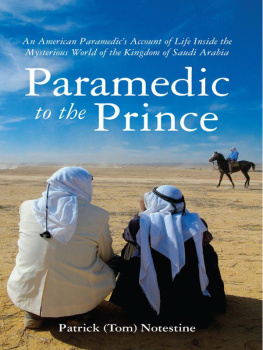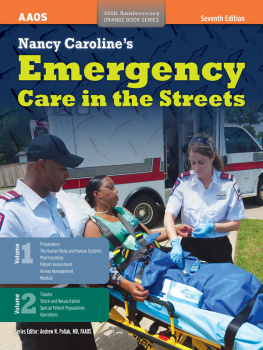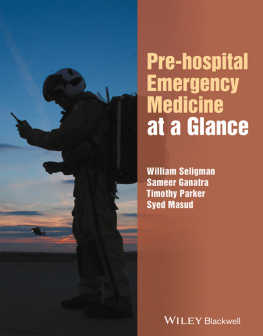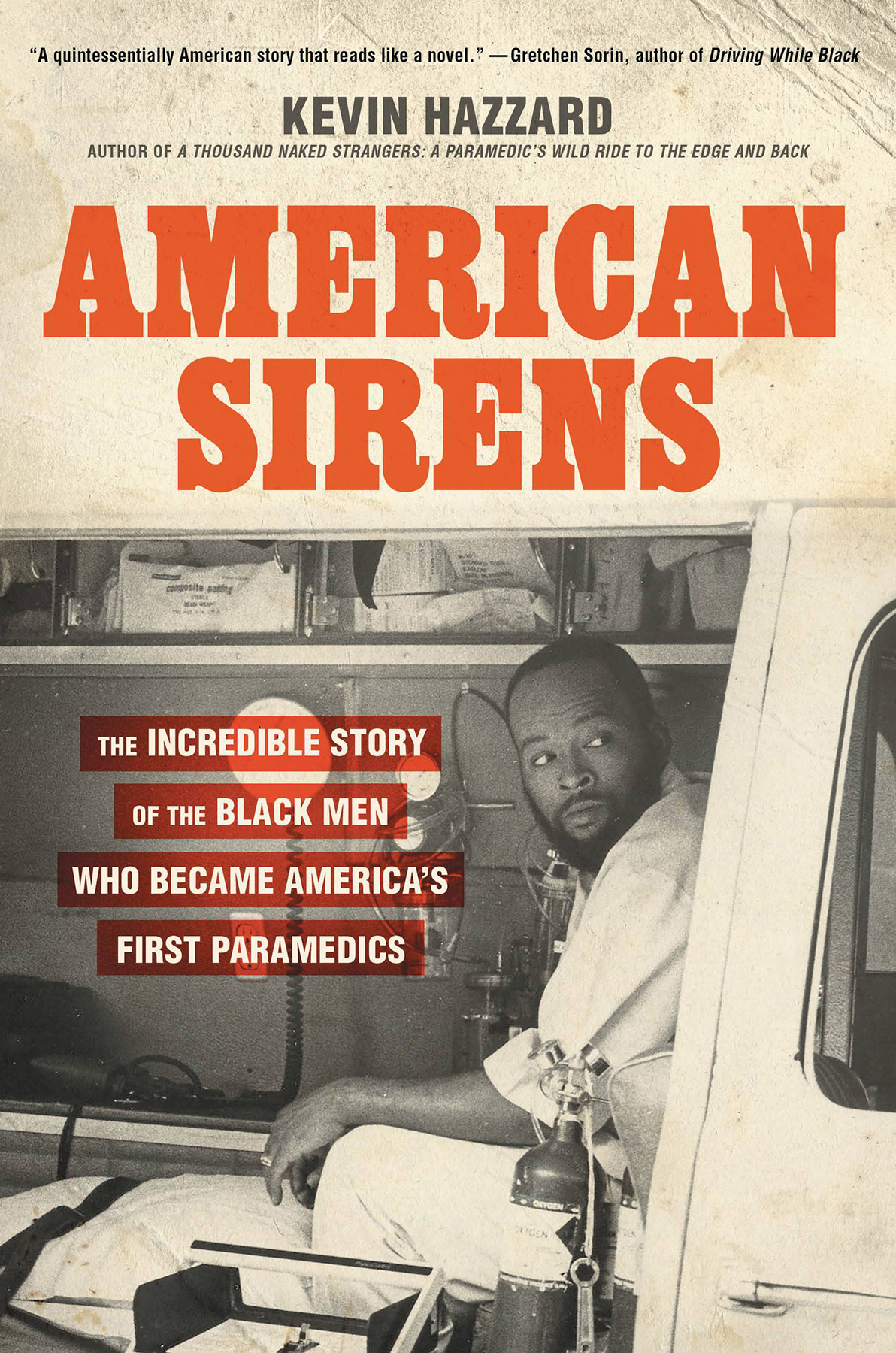
Copyright 2022 by Kevin Hazzard
Cover design by Terri Sirma
Cover photograph: image from The National EMS Museum Photograph Collection; texture IgorGolovniov/Shutterstock
Cover copyright 2022 by Hachette Book Group, Inc.
Hachette Book Group supports the right to free expression and the value of copyright. The purpose of copyright is to encourage writers and artists to produce the creative works that enrich our culture.
The scanning, uploading, and distribution of this book without permission is a theft of the authors intellectual property. If you would like permission to use material from the book (other than for review purposes), please contact permissions@hbgusa.com. Thank you for your support of the authors rights.
Hachette Books
Hachette Book Group
1290 Avenue of the Americas
New York, NY 10104
HachetteBooks.com
Twitter.com/HachetteBooks
Instagram.com/HachetteBooks
First Edition: September 2022
Published by Hachette Books, an imprint of Perseus Books, LLC, a subsidiary of Hachette Book Group, Inc. The Hachette Books name and logo is a trademark of the Hachette Book Group.
The Hachette Speakers Bureau provides a wide range of authors for speaking events. To find out more, go to www.hachettespeakersbureau.com or call (866) 376-6591.
The publisher is not responsible for websites (or their content) that are not owned by the publisher.
Library of Congress Cataloging-in-Publication Data
Names: Hazzard, Kevin M., 1977 author.
Title: American sirens : the incredible story of the Black men who became Americas first paramedics / Kevin Hazzard.
Description: First edition. | New York : Hachette Books, 2022. | Includes bibliographical references.
Identifiers: LCCN 2022006917 | ISBN 9780306926075 (hardcover) | ISBN 9780306926082 (ebook)
Subjects: LCSH: Freedom House Ambulance Service (Pittsburgh, Pa.) | Emergency medical techniciansPennsylvaniaPittsburghBiography | Ambulance servicePennsylvaniaPittsburghHistory20th century.
Classification: LCC RA645.6.P4 H39 2022 | DDC 362.18/809748/86dc23/eng/20220609
LC record available at https://lccn.loc.gov/2022006917
ISBNs: 9780306926075 (hardcover), 9780306926082 (ebook)
E3-20220725-JV-NF-ORI
For Pepe, as always
and
To John, who continues to answer the call
The revolution will not be televised.
G IL S COTT -H ERON
I t took Ragin screaming in their faces on the corner of Fifth and Market for people to notice him. Thats how easy he was to ignore. Thin, light-skinned, glasses. And those clothes, you know the clothes, almost a uniform for people living on the streetsdirty jeans and too-large shoes, shirt upon shirt upon shirt. The sort of guy people ignore until hes shouting at them, and then its like he appeared from nowhere, by magic, a problem without a source, angry and raising hell over crimes committed against him yesterday or the week before, maybe a decade before. But he kept turning it up and eventually got so combative someone called the cops, which says something about how worked up he was, considering, in the early 80s, Pittsburghs Market Square was overrun by crime and drugs, by pigeons. By countless men just like this one. People did their best to keep moving, one lookdont lookand youre sucked in. Now they were sucked in, all those people staring. And not one of them knew his name.
Across town, John Moon sat in a four-wheel-drive Suburban with his job (Pittsburgh EMS) and title (supervisor) painted on the door. Outwardly John seemed constructed to blend, with his average height and weight, those soft features. Inside he was a bundle of contrasts. Northern raised but a Southern accent. Mid-thirties but a string of past lives. Loved Angela Davis and the afro but polite to the point (almost) of deference. He wore silver-framed glasses that he occasionally slid back into place with a long, thin finger. Inside his car, the radio played softly, a Jackie Wilson song maybe or the jazz guitar of Wes Montgomery. His truck was spotless, gleaming, the uniform freshly pressed. Everything about him, all that he owned, was carefully tended with the meticulous pride of a man who once had nothing. Outside his window, clouds slipped past in the Pittsburgh sky.
Back at Market Square, the police arrived with a slam of car doors. Ragin was wound up, and they watched from a distance, sifting through a thousand scenarios for the one that brought this whatever you wanted to call it, to an end the quickest. Contain and control. One of the cops reached for his radio.
The two-way in Johns truck crackled. Along with radio traffic from his crews on the street, he kept an ear on the police radio too. Better to know whats coming before it arrives. What arrived that afternoon, floating up from the speaker in a burst of static, caught his attention: Black male at Fifth and Market. Possible psych. Combative. John knew without having to be told that it was Ragin in the street. That he could get angry and loud and that when he did, people got nervous. He knew that Ragin had peered over the edge and slipped, that hed come untethered from reality and probably he was harmless, but the cops didnt know that, and they were in charge now. What they did next could be anything. John slipped the key into the ignition, turned it, and pumped the gas pedal until the Suburban roared to life.
Downtown Pittsburgh is a near-perfect triangle of land formed by the Monongahela and Allegheny rivers as they join to create a third, the Ohio, a confluence marked by the site of the eighteen-century remains of Fort Duquesnea trophy from the French and Indian War known now as Point State Park. A few blocks to the east sits Market Square, and its here, next to an oyster house that was once (maybe) a stop along the Underground Railroad, that John found Ragin wrestling with the cops.
John cursed out loud, then yanked the wheel and pulled the Suburban to a quick stop along the curb, reaching for the two-way radio to tell the dispatcher he was on-scene.
Medic 30. Already throwing the truck into park.
Go ahead, Medic 30, the dispatcher called back.
Show me out at Fifth and Market. Swinging open the door.
Market Square tingled with the electric pulse of danger. The crowd was jittery and tense as Raginscared, angry, and disoriented, rapidly coming unspooled in the streetscreamed at the cops, who in turn had a hold of his arms and were trying to drag him to the ground. The cops hadnt yet hit him or cuffed him, but John could feel their anger and frustration even from here, on the outer edges of the crowd. He stepped into the clearing.
Mind if I try?
One of the cops swung his head just enough to catch the white gleam of a uniform as John, hands on hips, drew to a stop with the deliberate assurance of a conductor appraising his audience. This nonchalance was a learned habit, the product of over a dozen years on an ambulance, leaping daily onto the back of emergencies big and small. To practice medicine in the street a paramedic must first gain control of the environmentcome in too hot, swept up in the panic and rush, and everything goes to hell. Instead, John approached Ragin and the cops, too, the way he would any scene. Like a drop of reason in the swirling waters of chaos. He nodded toward Ragin.
I know him. Why dont you let me have a word? Johns voice was gentle, half an octave higher than youd expect, a syrupy Southern accent kids had once mocked him for smoothed over by time to a rolling lilt. He now had both cops attention and kept talking, asking how and when all this started, and after a momentJohn standing there the whole time, an easy presence within arms reachthey let go of Ragin. With the fighting stopped, the screaming stopped too. Tension broke all at once like a release valve had finally burst open, and at last everyone could breathe.


